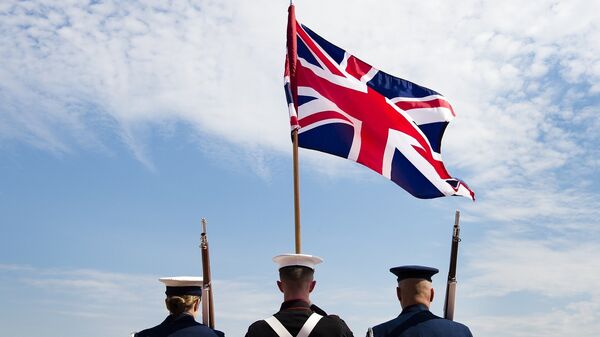The UK is facing an army enlistment crisis, with combat units operating 40 percent below strength, The Guardian reported, citing data released by the Defence Ministry under freedom of information laws.
The figures show that the number of troops in the British Army's infantry regiments has reduced gradually over the past five years.
While publicly available data released quarterly by the ministry indicates a 7.6 percent deficit in personnel across the army on 1 January 2019, The Guardian says to have analysed the FOI figures for the same period that show that nine of the 16 infantry regiments were 20 percent or more below their "workforce requirement". Four, meanwhile, were 25 percent or more below the planned number of soldiers needed.
According to the news outlet, the data for January 2019 reveals that there were more than 2,850 fewer soldiers in infantry regiments than there were five years ago. At the outset of 2015, there were 15,880 personnel serving in regimental duty, which is 6 percent lower than the target strength of 16,847. On the same date this year, there were 13,300 soldiers — 17 percent below the required 15,940.
"Army numbers are in freefall under this Conservative government. At a time when our country faces an increasing number of threats, it is simply unacceptable for numbers to be falling year after year", Nia Griffith, the shadow defence secretary, was cited as saying.
In the meantime, a spokesperson for the army told The Guardian that it was fully committed to improving its enrollment practices and was working with the recruitment system Capita to handle the existing challenges.
"The army continues to meet all of its operational commitments to keep Britain safe. Applications to join the army are at a five year high, with around 77,000 applications to join as a regular soldier alone in financial year 2018-19. We have also increased the enlistment to conversion rate from one in 10 to one in eight".
The report comes as tensions between the UK and Iran reached a boiling point last month after Gibraltar's authorities detained an Iranian vessel, the Grace-1 oil supertanker, with assistance from UK Royal Marines, over a purported crude oil delivery to Syria in violation of EU sanctions. Tehran has denied the allegations.
A few weeks later, Tehran seized a UK-flagged tanker, Stena Impero, in the Strait of Hormuz, accusing it of violating maritime laws and performing dangerous manoeuvres. The Islamic Republic has, however, stressed that the move was not a retaliation for the detention of its supertanker.
As a result, the UK announced plans to set up a European-led maritime "protection mission" to patrol the Persian Gulf, while at the same time agreeing to join a similar US-led initiative, Operation Sentinel, against an alleged Iranian threat in the region.


